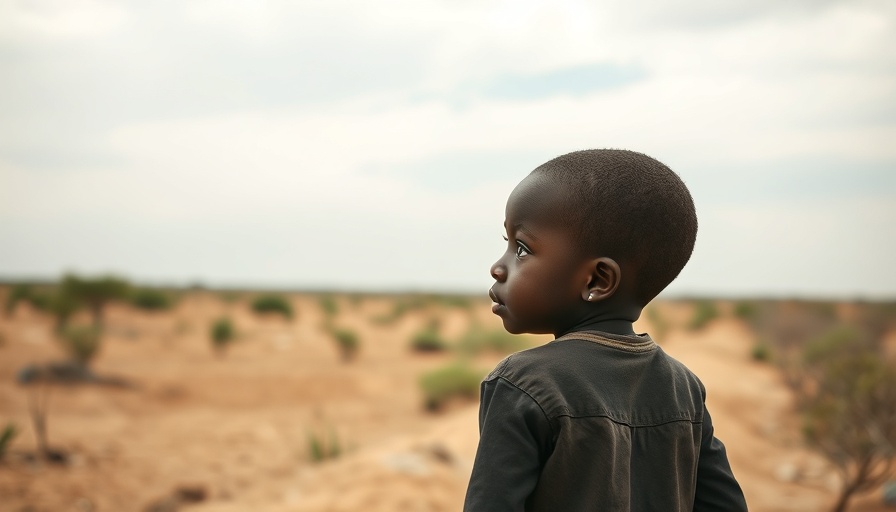
The Alarming Surge in Hunger Across Eastern and Southern Africa
Hunger has dramatically surged by nearly 80% in Eastern and Southern Africa over the past five years, a figure that reflects not only the escalating climate crisis but also the failure of resource management in one of the world’s most vulnerable regions. Oxfam's recent report paints a stark picture: millions of families are grappling with food insecurity as reliable sources of water dwindle.
Understanding the Climate Crisis’ Direct Impact
The climate crisis is intricately linked to the deepening human suffering in these regions. Oxfam's Africa Director, Fati N’Zi-Hassane, emphasizes that beyond statistics, this crisis has a human face impacting masses whose livelihoods are destroyed by severe weather changes. In Ethiopia, for instance, food insecurity has skyrocketed by 175%, leaving over 22 million people without reliable access to food. The delay of seasonal rains has become a severe threat, changing farming patterns and spurring crises of nutrition and sustainability.
A Closer Look: The Water Crisis and its Ramifications
Over 91% of small-scale farmers in the eight countries evaluated depend on rainwater for both drinking and irrigation. Unfortunately, the situation has grown dire; for instance, in Kenya, significant land has turned arid from 1980 to 2020, resulting in failed crops and livestock losses. Farmers like those in Somalia recount tales of crop failures due to inconsistent rainfall patterns, with some experiencing complete losses of their yields.
The Gendered Dimensions of Water Scarcity
The water crisis disproportionately affects women and girls who typically bear the brunt of these hardships. In their pursuit of water, they spend hours traveling, often up to 10 kilometers, facing physical exhaustion as well as violence. The precious time spent fetching water could otherwise be invested in education or productive work, showcasing how intertwined issues of gender, water access, and poverty are.
Calls for Action and Justice in Resource Allocation
N’Zi-Hassane argues that resolving this crisis requires not just financial assistance, but justice in resource allocation. Sub-Saharan Africa receives merely 3-4% of global climate finance, although it is critical that these funds are increased. The argument for fair contributions from wealthier nations is becoming more pertinent, underlining the necessity for accountability in climate change impacts.
Empowering Local Communities through Technology and Infrastructure
One solution lies in utilizing technology to transition towards more sustainable agricultural practices, thereby leveraging innovations such as agritech and IoT. Investing in water infrastructure not only addresses immediate needs but nurtures resilience within communities across Africa. Digital transformation in resource management through improved data analytics and machine learning can improve farming techniques, create better water management strategies, and ensure food security for these vulnerable populations.
Understanding the Global Context and Taking Action
The hunger crisis in Eastern and Southern Africa is not an isolated issue but a reflection of global patterns of inequality, climate change, and mismanagement of natural resources. Local governments, alongside international actors, must prioritize investment in technological innovations that support sustainable practices. By understanding these crises through a global lens, decision-makers can create more impactful policies.
It’s vital for stakeholders—be it governments, NGOs, or entrepreneurs—to take actionable steps in aligning their strategies with the needs of these afflicted communities. Promoting digital skills, ensuring digital inclusion, and integrating technological advances can lead to significant progress.
As this situation evolves, the responsibility to act lies with us all. Invest in understanding the nexus of climate change, hunger, and technology; the time for action is now.
 Add Row
Add Row  Add
Add 




Write A Comment